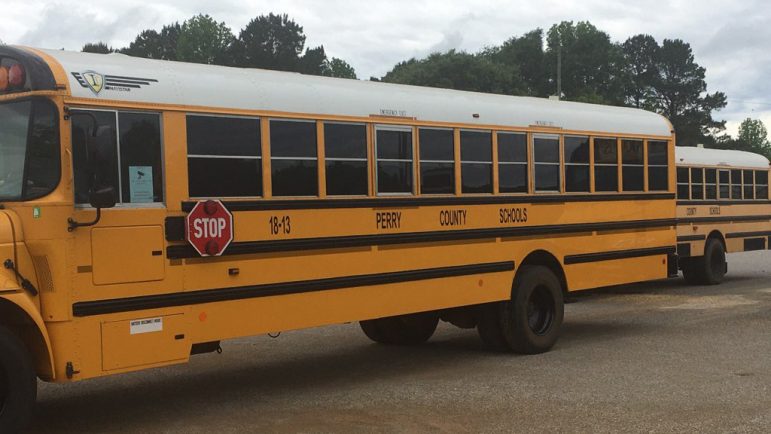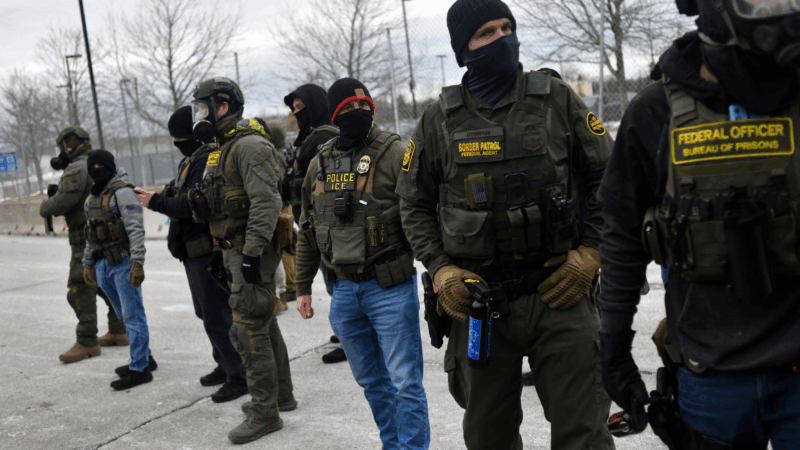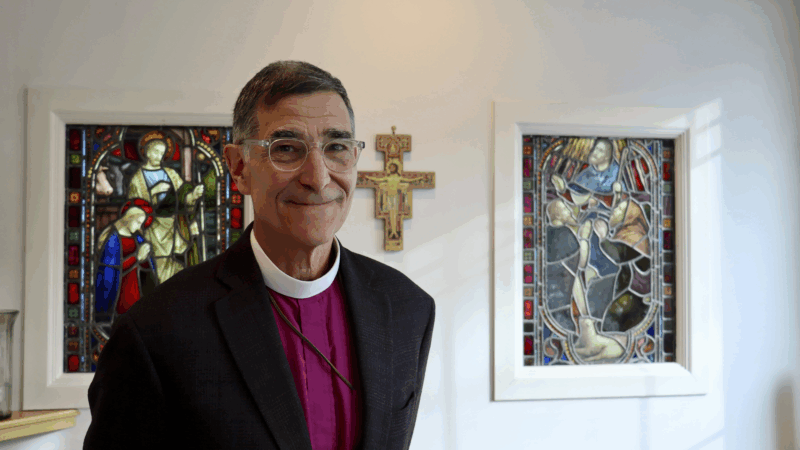In Rural Alabama, Pandemic Highlights Need For Broadband Access
Ben Eaton is one of roughly 9,000 people who live in Perry County, about an hour’s drive south of Tuscaloosa in the Black Belt region of Alabama. Eaton’s house is one mile from the center of town and, according to him, it is the last one on the street that has internet.
“It works sometimes. Sometimes it doesn’t,” he said.
He has a dial-up connection, which is pretty much the only option. Internet access has been a problem for years throughout rural Alabama. According to one survey, the state ranks 38th nationwide in broadband coverage. People in Perry County have especially felt the impact during the COVID-19 crisis.
“We need broadband,” Eaton said. “We need something that’s gonna help us get us through this.”
The Virtual Classroom
Schools have been closed for more than a month and teachers are supposed to be finishing classes remotely. But at least 20% of students in Perry County don’t have access to the internet at home. According to the local school superintendent, John Heard III, those with coverage have a slow connection or use cell phone data.
“It’s not very practical for a lot of our students because they don’t have the bandwidth to even do the Zoom sessions,” Heard said.
Schools are offering paper packets, but Heard said it’s not the same. Educators rely on the internet now. A few years ago, the district started providing students with an iPad or a ChromeBook, with assistance from the Apple ConnectEd program, and they have high speed internet at school. They just need access at home.
The Perry County school board recently invested in 10 buses equipped with WiFi. Starting this week, they are parked throughout the county every day from 11 a.m. to 3 p.m., providing free internet to anyone within 150 feet.

Perry County Schools
Perry County plans to continue using the WiFi-equipped buses after schools re-open. Heard said some students spend more than three hours every day on the bus and can use the internet to work on homework.
Heard said the school system paid more than $1,200 to outfit each bus, which is a lot of money for a poor county lacking revenue. But they had to do something.
“We just could not wait until we had the funds at hand,” Heard said, “because school would have been, you know, out.”
He said people in the area have been asking for broadband access for more than a decade, and not only to improve education.
Health Care From Home
Many people cannot work from home without an internet connection and some have already lost income as a result, according to Susan Jones, communications director of the nonprofit Sowing Seeds of Hope. Jones said in urban areas, people also use the internet to manage chronic illnesses and visit with a doctor, but she said residents in Perry County cannot get the full benefits of telemedicine.
“As far as the high tech things that make telemedicine so unique and so effective, where they can actually do some examinations of you, that’s not possible without better internet access than we currently have in most parts of the county,” Jones said.
At the same time, she said residents need more health care options. There is no hospital in Perry County, and people in the area have some of the worst health outcomes in Alabama. Heard said the COVID-19 crisis might finally spark action from state leaders.
“This pandemic has kinda highlighted that real need,” Heard said. “So I think we’re probably at a good spot for something to really happen besides talk at this point. We certainly hope so.”
Delayed Action
In 2018, Governor Kay Ivey started a fund to extend broadband to underserved areas. She recently used it to award nearly $10 million in grant money, though none of those projects will reach Perry County.
Democratic U.S. Senator Doug Jones said there is widespread political support for broadband expansion, and he expects to see more action soon.
“I think it has been a priority for the state of Alabama, as well as the Feds,” Jones said, “but now, we’ve got to rush that up.”
The state expects to receive $1.7 billion of federal relief money to address issues related to COVID-19. Alabama’s top Republican senator Del Marsh recently said he’d like to see $800 million of that go to broadband expansion.
U.S. military troops on standby for possible deployment to Minnesota
The move comes after President Trump again threatened to invoke the Insurrection Act to control ongoing protests over the immigration enforcement surge in Minneapolis.
Martin Luther King Jr. had a dream … about health care
A doctor from Nigeria tells what Martin Luther King Jr. taught him about health, Justice and inequality.
Sunday Puzzle: It takes two
Ilyse Levine-Kanji of Westborough, Massachusetts plays the puzzle with Weekend Edition Puzzlemaster Will Shortz and host Ayesha Rascoe.
Venezuela: Maduro’s enforcer Cabello still central to power
The ousting of Venezuela's president raised hopes of change — but the politician now controlling the streets shows how little has really shifted.
Amid ICE clashes, New Hampshire bishop urges clergy to prepare their wills
The Episcopal bishop of New Hampshire told priests protesting ICE to get their wills and affairs in order. Some praise the bishop, while other priests say they never signed up to be martyrs.
New York Giants hire John Harbaugh as coach after identifying him as their top choice
Harbaugh joins the Giants 11 days after he was fired by the Baltimore Ravens. The Super Bowl champion is now tasked with turning around a beleaguered franchise.







